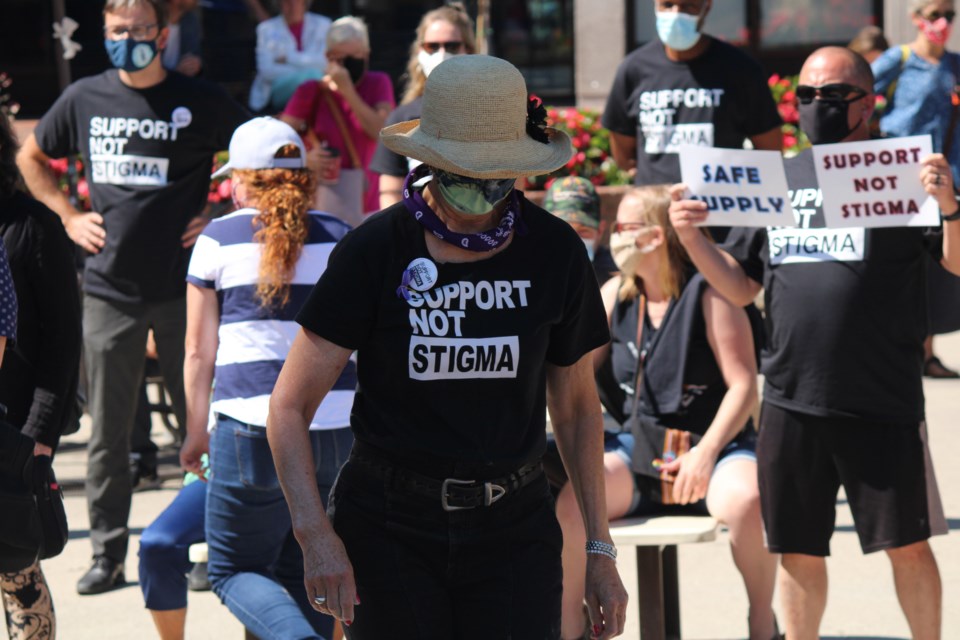WELLINGTON COUNTY – Harm reduction and other services for people with substance issues are becoming increasingly available in Wellington County, but some factors are making expansion of these efforts difficult.
Adrienne Crowder, manager of Wellington Guelph Drug Strategy, explained that the county has recently become part of the system public health uses to track fatal overdoses.
There have been 15 reported opioid overdose-related deaths in Guelph so far this year.
While Guelph has a robust and established process, the county is new to this and therefore making it hard to precisely figure out the scale of the problem.
“What we do know is that throughout Canada, opioid poisoning is happening at an unprecedented level. Wellington County will not be spared,” Crowder said. “My concern is that we don’t know exactly how much and we can’t step in and be as effective in trying to help.”
Crowder said she thinks another layer to the challenge is that people in a rural community may not be as open about their substance issues to seek out services in their area.
“In the city you can come to a consumption and treatment site and you can come and pick-up harm reduction supplies,” Crowder said. “I know people from the county come (to Guelph) and pick-up harm reduction supplies. It’s a different culture around what is comfortable and what is not comfortable.”
There has been an effort to bring services to the county. Crowder said Elora’s Rapid Access Addiction Clinic has quickly expanded.
She also said the Sanguen Health Centre’s Community Health Van makes stops in the county.
“The need is there but it’s allowing the services that are fairly city centric to find a way in to support the county,” Crowder said.
Aislinn Moore, Community Health Van coordinator for Guelph/Wellington, said the van would make stops on alternating Tuesdays in the Erin region and Palmerston but the pandemic has made this go on and off.
The Community Health Van provides services to at-risk people with harm reduction services, pregnancy and STI testing, clothing, food, hygiene products, referrals to community services and more.
“We know there’s a need to be there for harm reduction services, Narcan and naloxone training,” Moore said. “Toilet paper and hygiene supplies is a really big one. That’s probably 80 per cent of what we hand out.”
Moore explained that their strategy to gain footing in the rural region is to work with other established community agencies such as Guelph-Wellington Women in Crisis.
“We try to piggy back on the things that are already established so we can work together with the community resources that are there,” Moore said.
The biggest challenge according to Moore is gaining the trust of the community as a new service.
“I feel like that’s similar in Guelph as well when you show up in a van with a bunch of things and people don’t know you,” Moore said. “Especially with the communities we talk to, they have a lot of people that have let them down in the medical and legal industry.”
Crowder said the only way she knows to build trust is to simply be trustworthy.
“Show up and be a safe person to work with,” Crowder said. “I think it’s time and opportunity that’s going to allow that to happen.”

